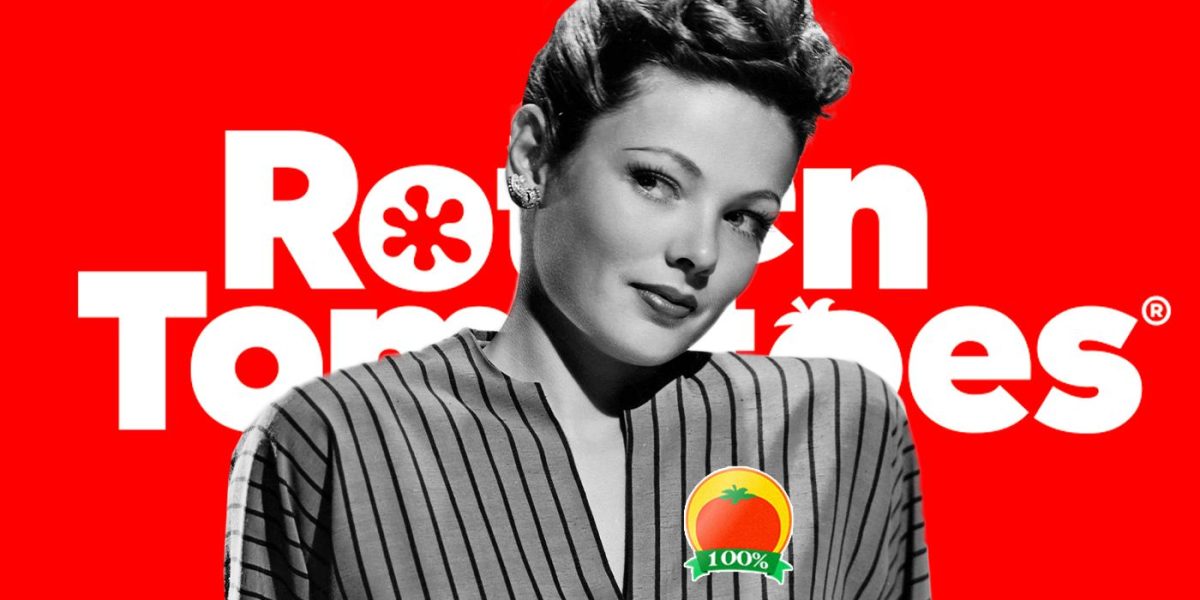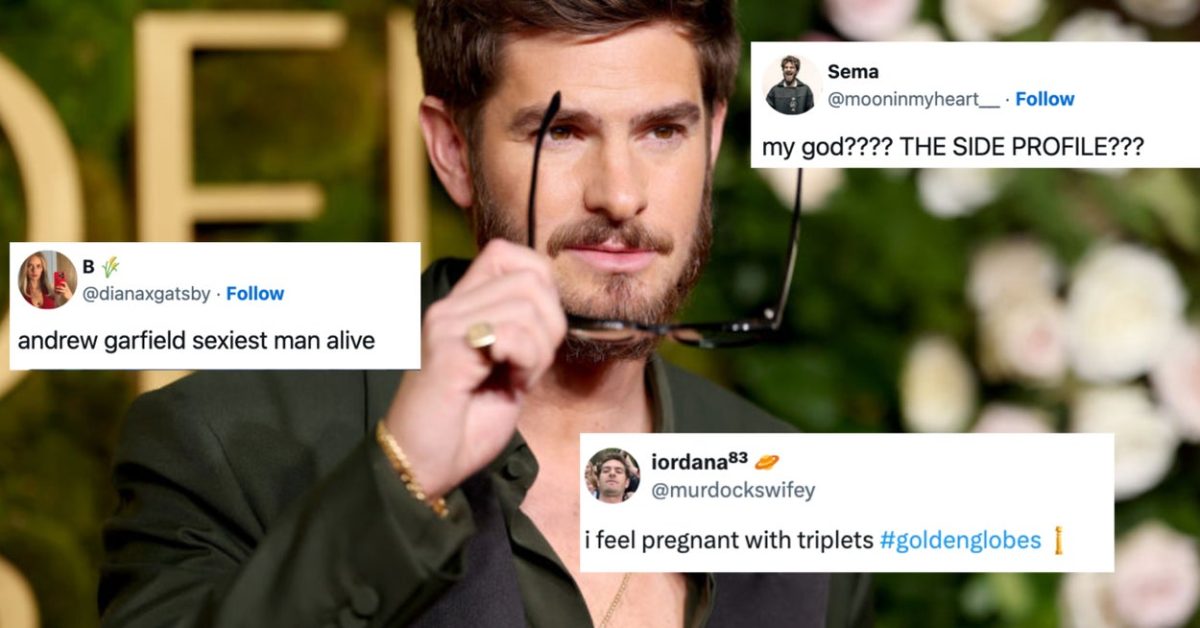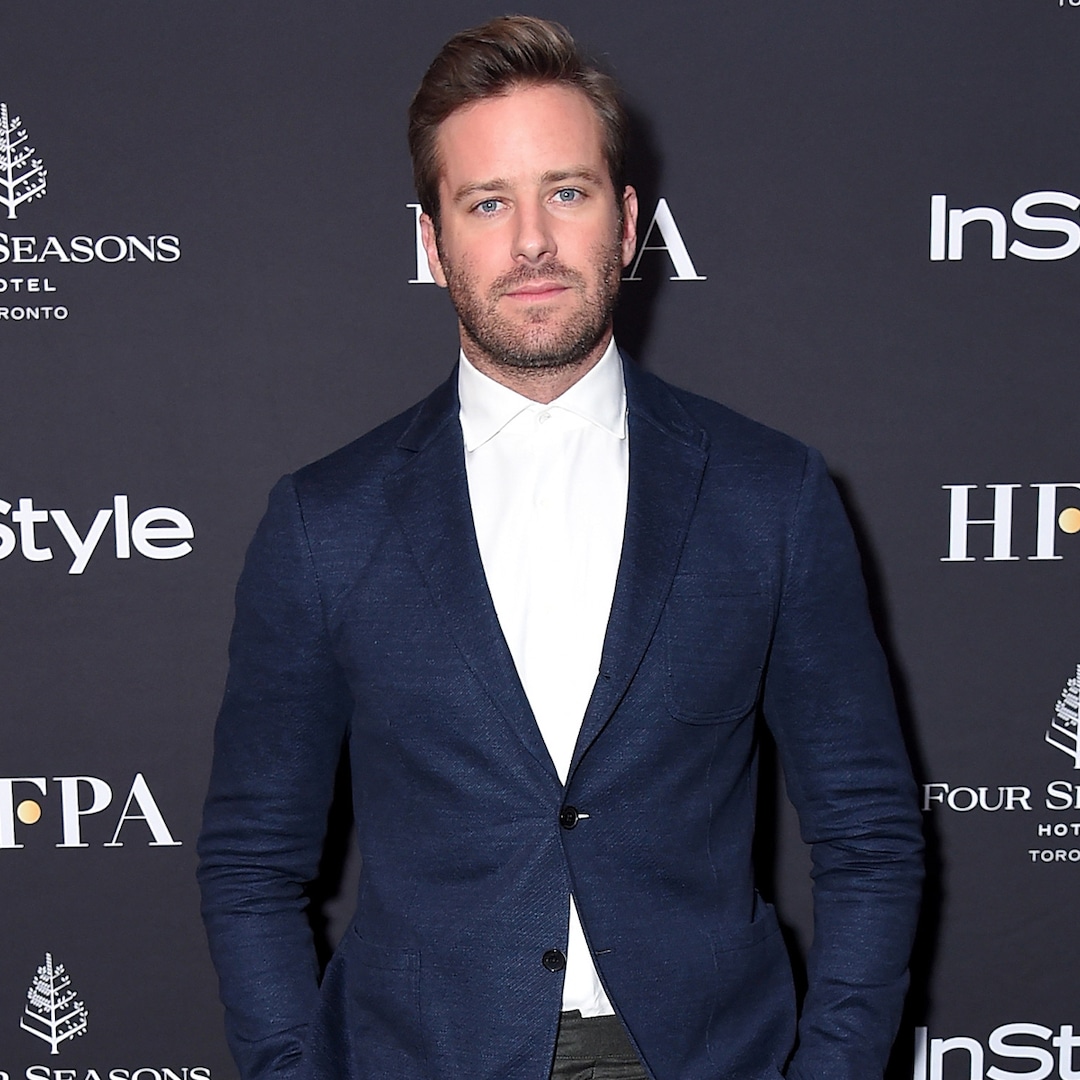
The Psychological Film Noir With a Perfect Rotten Tomatoes Score
Apr 18, 2024
The Big Picture
1944’s
Laura
is one of the few films to score 100% on Rotten Tomatoes.
Laura
is a nuanced psychological thriller and murder mystery about toxic obsession as well as a perfectly executed classic noir.
Laura’s
star, Gene Tierney, portrays a complex woman who challenges societal restrictions but isn’t a
femme fatale.
The Golden Age of Hollywood has no shortage of treasures held in high critical regard. No surprise, really, given the “Golden Age” designation, and especially true for the ominous, morally-wrought world of classic film noir. Even in this context, few contenders vying for the highest of cinematic honorifics — “perfection” — compare to 1944’s Laura, a fact the film’s enviably rare 100% Rotten Tomatoes score reflects. This status begs the question: why? Well, as a psychological thriller about obsession, feminine iconography’s inherent restrictions, the ways realistic women move within stifling conditions, and how men react when women breach patriarchal expectations, Laura stands tall as a minor miracle. Yet this thematic nesting doll is easily digestible; even entertaining. It’s a taut, tightly wound ball of nerves, a loaded firearm deploying the mother of all second act surprises that’s also a laugh-a-minute. Every misc-en-scene detail, from camera angles to set staging and a luxurious score, supports Laura’s thesis and establishes a majestically unsettling mood. Its mastery of film language makes it catnip for professional critics and general audiences alike (plus every combination or variation in between).
Laura A police detective falls in love with the woman whose murder he is investigating.Release Date October 11, 1944 Director Otto Preminger , Rouben Mamoulian Cast Gene Tierney , Dana Andrews , Clifton Webb , Vincent Price , Judith Anderson , Grant Mitchell Runtime 88 Minutes Main Genre Drama Writers Vera Caspary , Jay Dratler , Samuel Hoffenstein , Elizabeth Reinhardt , Ring Lardner Jr. Tagline The story of a love that became the most fearful thing that ever happened to a woman!
What Is the Film Noir ‘Laura’ About?
Laura originates from a novel by Vera Caspary, a writer described by All Movie Guide, via the New York Times, as “one of the most prominent woman authors and playwrights of her generation, and one of the most forward-looking, in terms of her vision of the role of women, ever to succeed in Hollywood.” Laura begins in media res as Detective Mark McPherson (Dana Andrews) investigates the murder of marketing executive and socialite Laura Hunt (Gene Tierney). As McPherson unearths Laura’s complex relationships, he discovers her circle had reasons to kill her — albeit ludicrous reasons predicated upon their insecurities. To unconventionally complicate matters, McPherson becomes infatuated with Laura’s memory.
Unlike traditional film noir, McPherson doesn’t provide Laura’s moody narration. That falls to Waldo Lydecker (Clifton Webb), Laura’s mentor, a venomously witty newspaper columnist, and “the only one who really knew her.” However, that’s Lydecker’s assertion, and we know objectivity is laughable in film noir’s world of unreliable narrators and duplicitous figures who blur good-and-evil distinctions. Likewise genre-typical, nothing in Laura is what it appears, especially not its seemingly straightforward plot. Director Otto Preminger, cinematographer Joseph LaShelle, and a quartet of screenwriters’ proficient storytelling propel audiences into a twisting mystery as sharp and enticing as a rose thorn. Examine Laura and you’ll bleed. The sting proves worthwhile.
Why Is ‘Laura’ a Perfect Film Noir?
By 1944, the prototypical noir style was flourishing. Laura revels in the genre’s command over atmosphere and how said atmosphere foreshadows characters’ bleak aptitudes. Joseph LaShelle’s camera variates between stalking movement and unnatural stillness. The black and white palette embraces the metaphorical nature of shadows. Costumes — trenchcoats, gowns, double-breasted suits — suggest elegance without being showy. Hovering above it all croons a dreamily romantic jazz composition by David Raksin. Cumulatively, Laura’s production evokes a mood as thick and silky as tree-fresh maple syrup, and that’s film craft at its finest: when everything is intuitively chosen and expertly applied.
Even the prettiest noir is nothing without a prickly script. The rhythm of Laura’s snappy dialogue is equivalent to a Beethoven symphony. It flows in peaks and valleys, with the peaks as piercing as Mount Everest and the valleys cherishing quietude. Lydecker gets the most combative quips, and filtered through Clifton Webb’s blistering delivery, they’re irresistible. When questioned about his arrogance, Lydecker disdainfully purrs: “In my case, self-absorption is completely justified. I have never found any other subject quite so worthy of my attention.”
Male Obsession Is ‘Laura’s True Villain
Lydecker’s statement disregards his greatest passion: Laura. No obsession is healthy, but Lydecker’s fixation with the much younger woman only reveals how poisonous it is with time. Toxic obsessions require an image, and a portrait of the titular heroine becomes one of Laura’s recurring motifs. It captures her beauty in oils and sets her on display, idealized and silent, for the admirer. Such a glamorous and unrealistic image clashes with the Laura introduced by Lydecker’s flashbacks. She’s a beauty, yes, but she’s a beauty and a proactive and career-minded woman (a noteworthy combination). After a disastrous first encounter, Laura dismisses Lydecker’s contrite apologies. Granting this man space would mean surrendering her dignity.
Related This ’20s Psychological Horror Thriller Is an Avant-Garde ‘Shutter Island’ Don’t even try to understand what’s bubbling under the surface of this one.
Instead, Laura concedes. When Lydecker makes enough amends for the two to become friends, he asserts delicate but undeniable control: changing her hair, her clothing, and introducing her to high society. To drive home that Laura is his pet project and favorite accessory, Lydecker states, “She became as well known as Waldo Lydecker’s walking stick and his white carnation.” Unlike the femme fatales of noir lore, Laura doesn’t seduce Lydecker. Her tenacity captivates him, and he sees something he can mold into his preferred image. Laura’s trusting naivety lets him. Her greatest recurring weakness is her hope that terminally corrupt people will improve, no matter how often they prove otherwise.
Slowly but surely, the charmingly nasty man whose introspective narration opens Laura reveals his psychological contamination: hence Laura’s thriller classification. Lydecker’s so-called affection for Laura disguises his intense possessiveness and unfulfilled sexual desire. He isolates her into a virtuous paragon who’s responsive to his beck and call. His gifts, specifically a clock that’s a twin of one he owns, let him invade her home like connective tissue. When Laura starts behaving outside the confines of the box he’s tried to condense her into, Lydecker’s jealousy morphs from “minor” stalking into presumptive domination. In his words, a man “loses his self-respect” when his fragile masculinity can’t gain the thing he most wants. He craves Laura, yet can never own her every aspect. She belongs to no one. But is he guilty of murder? No one here is an angel — not even Laura, which is rather the point.
Laura Hunt Is a Unique Film Noir Heroine
As the woman at this mystery’s center, the severely underrated Gene Tierney operates at the top of her game in her career-defining role. Laura navigates a consistently hostile world, and Tierney infuses her heroine’s glances with layers of sympathetic humanity. Men desire her, women envy her, her friends adore her, and Laura orchestrates none of this by choice. She’s a cipher reflecting others’ desires. Despite the power of her portrait, Laura is no seductive villain. She’s measured by her universal empathy and a morality verging on self-sacrificial. Although flawed, she isn’t punished by the film. As noted by All Movie Guide, author “[Vera] Caspary’s heroines were often career women, or women attempting to juggle romance and independence, very similar to her own situation.” Laura herself declares with a sly smile, “My mother always listened sympathetically to my dreams of a career, and then taught me another recipe.” (Ouch.)
Laura rises from secretary to executive on her own merits. When her instincts lead her astray, she transforms her passivity into agency. Her errors in judgment make her glaringly relatable in a genre characterized by ingénues and evil women, the latter whom we adore for how their twisted agency flips social convention on its head. Laura moves the needle by rejecting the Madonna/whore binary. She exists in between, an intentional rarity. Which is the “problem”: an ambitious woman who’s kind, generous, and sexually active? Almost everyone within Laura’s circle finds something about her to critique. She represents how claustrophobically exhausting and dangerous it is when women challenge restrictions. Laura’s empowerment demands a cost. By courting ambition, Laura courts death.
Playing an individual who’s also a walking fable about feminine oppression, Gene Tierney threads a fine needle. One of celluloid’s most effortlessly alluring performers, the canvas that is Tierney’s face is always at work, even when she seems stoic. A calm surface belies the turbulent waters underneath. Tierney plays arch when men cross Laura’s boundaries and defiant when ordered to heel. When she’s cornered, Laura snarls, breathing unsteadily but refusing to flinch. The younger Laura, although never meek, evolves into an assured woman with professional and social power at her fingertips. And yet, Laura wears her heart on her sleeve. The film carries shades of the romance thriller, perhaps unexpectedly, but not without cause. Laura’s self-respect wars with her desire for love.
Why ‘Laura’ Deserves Its Perfect Score
Image: 20th Century Fox
Tierney’s co-stars are the era’s best and their slinky moral ambiguity fires on all cylinders. Dana Andrews, a noir staple, turns what could be a monotone co-lead into a delightfully dry and keenly intelligent detective-slash-love interest. Haunted by Laura’s mystery, he roams her apartment, the camera following one step behind and Laura’s portrait framing his profile like an ill omen. As the audiences’ closest entry character, McPherson encourages us to feel unsettled but siren-song drawn to Laura Hunt, the ultimate unattainable woman. Ironically, although McPherson falls for a “ghost,” as it were, events prove he understands Laura better than those closest to her.
Judith Anderson brings the menacing energy of her Mrs. Danvers (Rebecca) to Ann Treadwell, Laura’s aunt. Laura’s most subtly chilling scene belongs to Treadwill, who coolly admits to her niece’s face that she contemplated killing her. Then there’s the surprise delight of Vincent Price playing against type as Shelby Carpenter, Laura’s fiancé and “a male beauty in distress.” Indeed, the youthfully handsome Price — years before he transformed into a horror leading man — makes his Southern playboy a charming scoundrel capable of seducing three different women, but still a slippery, pouting coward with nothing of substance underneath that understated guile. He’s understated, he’s disarming, and his performance seamlessly merges with the film’s framework.
Even when you know the wild twist, Laura is one of the rare experiences that improves with time. The first rewatch reframes what came before, and each new viewing reveals new layers, subverts assumptions, and enhances appreciation. Laura holds a 100% Rotten Tomatoes score because it’s actually, truly, that good: a sterling work striking not with one fell swoop, but a swing that fells an entire forest. Laura still enchants me two decades after I stumbled upon the DVD in my grandparents’ collection, and is there a better compliment than that?
Laura is available to rent on Prime Video in the U.S.
Watch on Prime Video
Publisher: Source link
Aubrey Plaza Issues Statement After Jeff Baena’s Death
The 40-year-old star and Jeff’s family issued a statement to People on Monday, where they called their loss an “unimaginable tragedy.”The Los Angeles County coroner’s office previously determined that Jeff died by suicide in his LA home. He was 47…
Jan 10, 2025
Jill Duggar’s Husband Clarifies Where He Stands With Jim Bob Duggar
Jessa Duggar (m. Ben Seewald)Jim Bob and Michelle's fifth child, Jessa Duggar, was born Nov. 4, 1992. Jessa met Ben through church and he began courting her in 2013—the old-fashioned approach to romance coming as a brand-new notion to a lot…
Jan 10, 2025
The Internet Has Officially Lost It Over Andrew Garfield's Slutty Glasses
That man knew exactly what he was doing with those glasses.View Entire Post › Disclaimer: This story is auto-aggregated by a computer program and has not been created or edited by filmibee.Publisher: Source link
Jan 9, 2025
Armie Hammer Lands First Movie Role Since Cannibalism Allegations
Armie Hammer Cameos As “Kannibal Ken” in Music Video 4 Years After Cannibalism ClaimsArmie Hammer is heading back to the big screen. More than one year after the Los Angeles Police Department ended their lengthy investigation into the Call Me…
Jan 9, 2025











